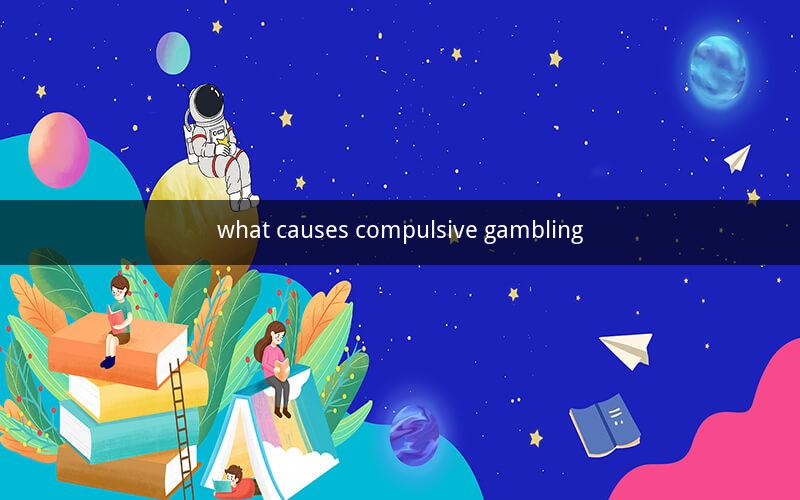
Table of Contents
1. Understanding Compulsive Gambling
2. The Psychological Factors
3. The Social and Cultural Influences
4. The Economic Aspects
5. The Role of Technology
6. Treatment and Support
7. Conclusion
1. Understanding Compulsive Gambling
Compulsive gambling, also known as gambling addiction, is a progressive addiction characterized by the inability to control or stop gambling despite the negative consequences. This condition affects individuals from all walks of life, regardless of age, gender, or socio-economic status.
2. The Psychological Factors
Several psychological factors contribute to the development of compulsive gambling. These include:
- Impulse Control Disorders: Individuals with impulse control disorders are more susceptible to developing gambling addiction due to their difficulty in regulating their behaviors.
- Mental Health Issues: Conditions such as depression, anxiety, and substance abuse can increase the risk of developing compulsive gambling.
- Personality Traits: Certain personality traits, such as risk-taking and sensation-seeking, can make individuals more prone to gambling addiction.
3. The Social and Cultural Influences
Social and cultural factors also play a significant role in the development of compulsive gambling. These include:
- Societal Acceptance of Gambling: In some cultures, gambling is seen as a normal and acceptable form of entertainment, which may lead to a higher prevalence of compulsive gambling.
- Peer Influence: Individuals may be influenced by friends or family members who engage in gambling activities, increasing their likelihood of developing an addiction.
- Media Portrayals: Media representations of gambling, such as in movies and television shows, can make it seem glamorous and appealing, potentially contributing to the development of gambling addiction.
4. The Economic Aspects
Economic factors can also contribute to the development of compulsive gambling. These include:
- Financial Strain: The economic stress of unemployment, debt, or financial hardship may lead individuals to seek relief through gambling, which can exacerbate their addiction.
- Easy Access to Gambling: The proliferation of online gambling sites and the availability of credit makes it easier for individuals to engage in gambling activities and potentially develop an addiction.
- Gaming Industry Marketing: The aggressive marketing strategies employed by the gaming industry can make gambling seem more appealing and accessible, potentially contributing to the development of gambling addiction.
5. The Role of Technology
Technology has significantly impacted the prevalence of compulsive gambling. These include:
- Online Gambling: The convenience of online gambling platforms allows individuals to access gambling activities anytime and anywhere, increasing the likelihood of developing an addiction.
- Mobile Devices: The widespread use of smartphones and tablets provides individuals with easy access to gambling apps and websites, further facilitating the development of an addiction.
- Data Tracking and Analytics: The use of data tracking and analytics in the gaming industry enables companies to tailor their marketing strategies to target individuals who are more likely to develop an addiction.
6. Treatment and Support
Several treatment and support options are available for individuals suffering from compulsive gambling. These include:
- Cognitive Behavioral Therapy (CBT): CBT helps individuals recognize and change negative thought patterns and behaviors associated with gambling addiction.
- Support Groups: Support groups provide a platform for individuals to share their experiences and receive support from others who are also struggling with gambling addiction.
- Inpatient and Outpatient Treatment: Inpatient and outpatient treatment programs offer comprehensive care for individuals with gambling addiction, including therapy, counseling, and support.
7. Conclusion
Compulsive gambling is a complex condition influenced by a variety of factors, including psychological, social, cultural, economic, and technological factors. Understanding these factors can help individuals and professionals develop effective strategies to prevent, identify, and treat compulsive gambling. As awareness of this issue continues to grow, it is essential to address the underlying causes of compulsive gambling to reduce its prevalence and impact on individuals and society.
Related Questions and Answers
1. Q: What is the most common age group affected by compulsive gambling?
A: Individuals between the ages of 18 and 35 are most susceptible to developing compulsive gambling.
2. Q: Can someone develop a gambling addiction without any prior history of mental health issues?
A: Yes, individuals without a history of mental health issues can still develop compulsive gambling.
3. Q: How does peer pressure contribute to the development of compulsive gambling?
A: Peer pressure can lead individuals to participate in gambling activities that they may not otherwise engage in, potentially leading to an addiction.
4. Q: Can cultural factors play a role in preventing or treating compulsive gambling?
A: Yes, cultural factors can influence how individuals perceive and approach gambling addiction, affecting their likelihood of seeking treatment and recovery.
5. Q: What is the primary goal of cognitive behavioral therapy in treating compulsive gambling?
A: The primary goal of CBT is to help individuals recognize and change negative thought patterns and behaviors associated with gambling addiction.
6. Q: Can compulsive gambling lead to financial and legal problems?
A: Yes, compulsive gambling can lead to significant financial and legal problems, such as debt and legal proceedings.
7. Q: How can individuals seeking help for compulsive gambling find the right treatment program?
A: Individuals can seek help from mental health professionals, support groups, or online resources to find the most suitable treatment program for their needs.
8. Q: What role does technology play in the recovery process for compulsive gamblers?
A: Technology can be used to support recovery by providing access to treatment resources, support groups, and tools to monitor and control gambling activities.
9. Q: Can family members or friends be affected by someone else's compulsive gambling?
A: Yes, family members and friends of individuals with compulsive gambling may experience emotional, financial, and psychological distress.
10. Q: How can society as a whole work to prevent the development of compulsive gambling?
A: Society can work to prevent compulsive gambling by raising awareness, implementing regulations on gambling activities, and providing support for individuals affected by the addiction.